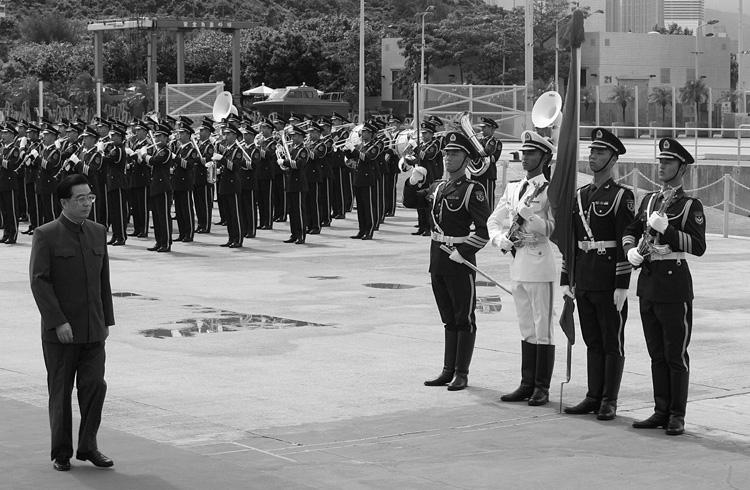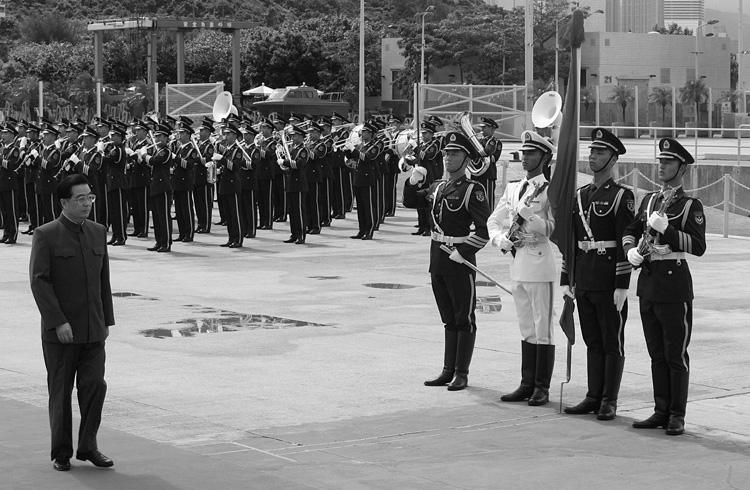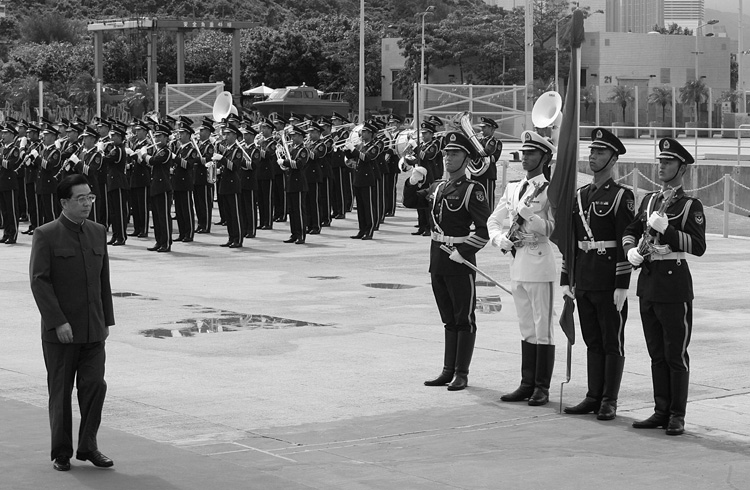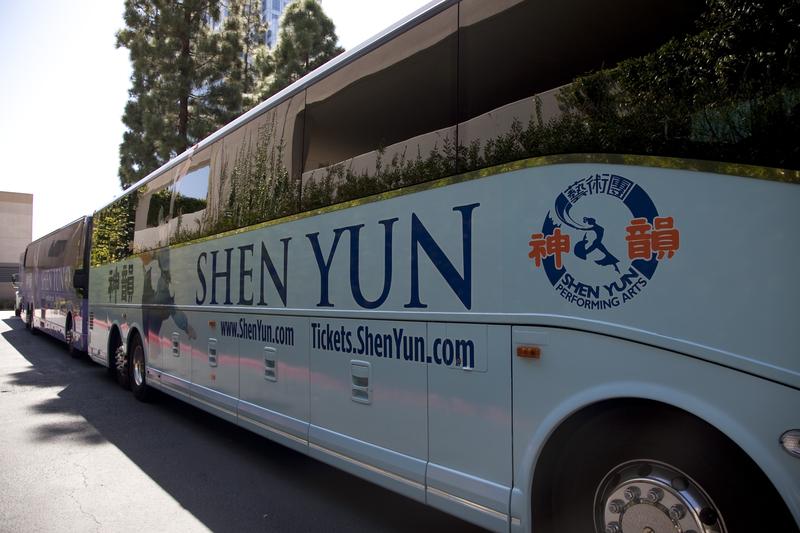Whoever gets the support of the army in the Chinese Communist Party’s (CCP’s) present environment of intense infighting is of vital importance. Recently, the Party Central has repeatedly demanded that the army pledge its allegiance to Hu Jintao. And according to a media report, it is likely that Hu will remain the Chairman of the Central Military Commission (CMC) for at least two more years after he hands over his position as General Secretary of the CCP this fall.
The PLA Daily, the official newspaper of the People’s Liberation Army, recently published a series of articles asking the army to “resolutely follow the command of the Party Central, CMC, and Chairman Hu.”
In a March 27 article it specifically emphasized: “We might lose our direction in this complex political power struggle if we are not seriously politically-minded.”
A commentary published on the Chinese website of Deutsche Welle on April 1 said that the PLA Daily article implies that a political power struggle is going on in Beijing. It also mentioned that after Hu successfully removed former Chongqing Party chief Bo Xilai, Hu can be expected to maintain his influence within the CCP after the power transfer this fall, and he is likely to follow former Party leader Jiang Zemin’s example and remain as Chairman of the CMC until 2014 or 2015.
Click this tag or www.ept.ms/ccp-crisis to read about the most recent developments in the ongoing power struggle within the Chinese communist regime. Intra-CCP politics are a challenge to make sense of, even for veteran China watchers. Here we attempt to provide readers with the necessary context to understand the situation. Get the RSS feed. Get the Timeline of Events. Who are the Major Players?![]()
Since the CCP is not really a legitimate government authorized by the people, in its infighting, it is impossible to follow any principle or rationale, or adopt any judicial ruling or arbitration procedure such as a national referendum, according to Chinese current-affairs commentator Wen Zhao.
“The army therefore plays a crucial role,” Wen told New York based New Tang Dynasty TV (NTD). “Whoever has the power [over the army] will win,” Wen said.
Challenges from Hardliner Faction
Deutsche Welle reported that Bo Xilai had tried hard to build up a network of relationship in the army.
After taking over as Party chief in Chongqing, Bo continued to make efforts to win over senior officials of the Chengdu Military Region in Sichuan Province. Hu Jintao and other officials considered Bo’s tactics as “clever.”
After Chongqing’s former police chief Wang Lijun’s failed attempt to defect to the U.S. Consulate in Chengdu on Feb. 6, Bo paid a visit to the 14th Army in Yunnan, which used to be under the command of his father, Bo Yibo.
Bo’s message to Hu was clear: “Don’t mess with me. I have the backing of the PLA,” the Deutsche Welle report said.
Zhou Yongkang, an ally of Bo, was the only member of the Politburo Standing Committee that opposed firing Bo. Zhou is the head of the powerful Political and Legislative Affairs Committee (PLAC), China’s domestic security apparatus, and therefore has forces comparable to the army at his command.
The 2012 budget for domestic stability maintenance controlled by Zhou is 701.8 billion yuan (US$111.39 billion), an 11.5 percent increase from the previous year, and both figures are higher than the military budget.
Some people have estimated that Zhou’s domestic security apparatus has a staff of close to 10 million people, including the public security police, national security officers, domestic security officers, Armed Police, special police, secret service police, traffic police, urban management force, Internet police and informants. Altogether it far exceeds the number of soldiers in the army, according to political commentator Chen Pokong, and this has threatened Hu Jintao and Wen Jiabao.
However, Zhou’s army is not a regular army, and its quality and loyalty are not necessarily reliable, Chen said. Hu, on the other hand, is in command of the regular army with advanced weapons, as well as the navy and the air force, and guided-missile technology.
Hu wants to hold on to the chairmanship of the CMC in order to protect himself and to assure the continuation of the Hu-Wen policy line, political commentator Wu Fan told NTD.
“Even if Hu and Wen retire from their posts, as long as the CCP exists, left-wing extremists will for sure continue to exist,” Wu said. “They will surely oppose Deng Xiaoping and the Hu-Wen line.”
Professor Yuan Hongbing, an exiled Chinese dissident and former law professor, told The Epoch Times that whether Hu can remain as the Chairman of the CMC after he steps down as Party leader is one of the key issues in the Party’s power struggle before the 18th National Congress this fall.




